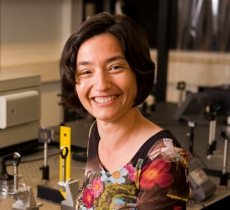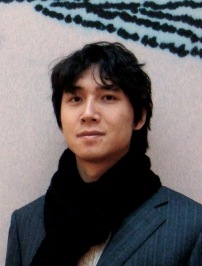Drie ERC Starting Grants toegekend
De European Research Council (ERC) heeft een ERC Starting Grant toegekend aan prof.dr. M.A. Loi, dr. M. Cao en dr. M.,A. Stöhr van de Faculty of Science and Engineering (voorheen de Faculteit Wiskunde en Natuurwetenschappen), Rijksuniversiteit Groningen. Zij ontvangen ieder 1,5 miljoen euro voor de duur van vijf jaar. De ERC Starting Grant is een prestigieuze persoonsgebonden beurs voor innovatief onderzoek. De beurs maakt het onderzoekers mogelijk een onderzoeksteam en programma op te zetten.
In 2011 ontvingen zeven onderzoekers aan de Faculty of Science and Engineering een ERC Starting Grant, en in oktober 2011 is een ERC Advanced Grant toegekend aan Thijs van der Hulst, hoogleraar extragalactische radio sterrenkunde aan het Kapteyn Instituut.

Prof.dr. Maria Antonietta Loi - Photophysics and Opto-electronics, Zernike Institute for Advanced Materials is een ERC Starting Grant toegekend voor haar onderzoeksproject Hybrid solution processable materials for opto-electronic devices (Hy-SPOD):
Halfgeleidende nanokristallen zijn gesloten systemen en daarom over het algemeen niet geschikt als bouwstenen voor elektronische apparaten. Het onderzoeksproject Hy-SPOD beoogt van halfgeleidende nanokristallen efficiënte onderdelen voor opto-elektronische apparaten te maken door met behulp van organische moleculen een functionele interface tussen de nanokristallen te bouwen. Hierdoor kunnen, aan de hand van natuurkundige verschijnselen als ‘multiple exciton generation’, uit deze gesloten systemen ladingdragers worden geëxtraheerd.
Dit onderzoeksproject betreft fundamenteel onderzoek dat een belangrijke stap zal zijn in de richting van zonnecellen als economisch haalbare alternatieve energiebron.

Dr. Ming Cao - Discrete Technology and Production Automation , Institute for Technology, Engineering & Management ontvangt een ERC Starting Grant voor zijn onderzoeksproject Control of spatially distributed complex multi-agent networks:
In dit project onderzoekt Cao hoe nieuwe strategieën en algoritmes kunnen worden ontwikkeld om het collectieve gedrag te controleren van grote aantallen ‘agenten’ die door lokale interacties zijn verbonden. Hij past systeem- en regeltheorie toe om dergelijke complexe netwerken te modelleren en analyseren, en gebruikt robotteams als casestudy’s om theoretische uitkomsten te implementeren en valideren.
Dit project vormt een belangrijke bijdrage aan de multidisciplinaire studie op het snijvlak van systeemtheorie, grafentheorie en complexe netwerktheorie, en zal ook de toepassing van autonome robotteams stimuleren.
Dr. Meike Stöhr - Zernike Institute for Advanced Materials
is een ERC Starting Grant toegekend voor haar onderzoeksproject Tuning electronic surface properties by molecular patterning:
Dit onderzoek richt zich op de vragen: Is het mogelijk om op kunstmatige wijze de elektronische oppervlakte-eigenschappen van een materiaal te veranderen? En daardoor toegang te krijgen tot materiaaleigenschappen als geleidingsvermogen, reflectiviteit en de katalytisch eigenschappen van het oppervlak? Doel van het onderzoek is een concept te introduceren om de oppervlakte-eigenschappen van metaalsubstraten en grafeen op elkaar af te stemmen, en om de onderliggende mechanismes die tot gemodificeerde eigenschappen leiden te onderzoeken.
Op basis van de onderzoeksuitkomsten kunnen nieuwe materialen worden ontwikkeld, die gebruikt kunnen worden in bijvoorbeeld (nano)elektronische apparaten of sensoren.
Meer nieuws
-
17 februari 2026
De lange zoektocht naar nieuwe fysica
-
10 februari 2026
Waarom slechts een klein aantal planeten geschikt is voor leven
